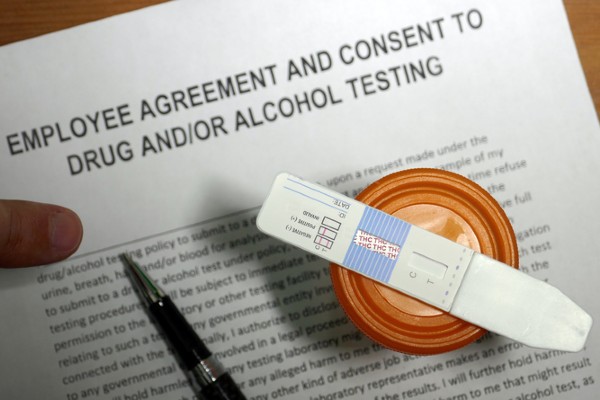
Conflicting State, Federal Laws Make Drug Testing Policies Tricky
As of August 1, 2023, 38 states have legalized the medicinal or recreational use of cannabis. Two have decriminalized it, and seven allow the use of CBD oil. Marijuana use remains fully illegal in just four states: Idaho, Kansas, South Carolina, and Wyoming.
Not surprisingly, marijuana use has increased sharply. Some 55 million Americans — almost 17% of the U.S. population — say they have used marijuana at least once in the past year. Americans in states where recreational cannabis is legal are 20% more likely to use it. Many of these cannabis users are in the labor force, creating a dilemma for employers that conduct drug testing.
Because of the ongoing U.S. labor shortage, employers have an incentive to relax drug testing policies to attract more workers. However, marijuana use remains illegal at the federal level. The number of workplace accidents and injuries involving employees under the influence of drugs is at an all-time high. Many employers will need to reevaluate their drug testing policies to reduce risk while ensuring compliance with conflicting state and federal laws.
Laws Requiring Drug Testing
Federal law does not generally require employers to conduct drug testing. The Drug-Free Workplace Act applies only to certain federal contractors, who must make a “good-faith effort” to prohibit the possession and use of drugs at worksites.
However, the U.S. Department of Transportation requires pre-employment testing of workers in “safety-sensitive” positions in the transportation sector. This includes drivers of commercial vehicles, commercial pilots and flight attendants, and “mechanical employees” of railroads, among others. These workers are subject to a range of drug tests, including pre-employment, post-accident, and random testing.
A few states also have drug-testing requirements. For example, Connecticut and Delaware require testing for the certification of school bus drivers, and Hawaii requires testing for civil service positions in the City of Honolulu. Several states offer employers discounts on workers’ compensation insurance premiums if they conduct drug testing and meet other criteria.
Federal Laws Restricting Drug Testing
Three federal statutes restrict the use of drug testing.
Americans with Disabilities Act (ADA). Employers can face discrimination charges for requiring employees who appear intoxicated to undergo drug testing. Several medical conditions protected by the ADA have symptoms that can mimic intoxication. Additionally, some courts have found employers in violation of the ADA for asking about legal drug use during pre-employment drug testing.
Title VII of the Civil Rights Act of 1964. Employers must ensure that drug testing policies are generally applicable and do not single out individuals in a protected category, such as race, ethnicity, or gender.
National Labor Relations Act (NLRA). Drug testing procedures covering unionized workers must be negotiated through formal collective bargaining. This includes drug testing required by federal law. Any penalties that result from failing a drug test must also be negotiated.
State Laws Restricting Drug Testing
Six states have laws prohibiting employers from discriminating against job applicants based on legal off-the-job marijuana use: Connecticut, Montana, Nevada, New Jersey, New York, and Rhode Island. California and Washington have passed laws that go into effect January 1, 2024. Several local governments, including New York City, also have similar laws. These laws do not preempt federal or state laws that require drug testing or apply to applicants for positions that the employer has identified as safety-sensitive.
Generally, however, employers in those states cannot make initial hiring decisions based on non-psychoactive cannabis metabolites that remain present in the body weeks after use. Someone who is not impaired can test positive for marijuana. Additionally, drug testing only determines whether the individual has used marijuana, not the level of impairment.
Other states have specific procedures for drug testing, such as written policies and notification requirements. In some states, employees must be given an opportunity to explain or contest the results, or have follow-up testing at their own expense. Employees may have the right to sue employers who violate these laws for lost wages, attorney fees and costs, and other damages.
What Employers Should Do
A nonexistent or vague drug-testing policy can also expose employers to liability. Applying the Department of Transportation requirements to all employees and disciplining employees inconsistently can create problems as well. Employers should carefully craft drug-testing policies, and train supervisors in how to apply them.
Employers should work with legal counsel to determine which laws and regulations apply. In addition to understanding limitations on drug testing, employers will need to determine whether they can make hiring and firing decisions based on drug tests. They will also need to understand whether employees who are fired for failing a drug test are entitled to unemployment benefits and whether employees injured on the job while impaired are entitled to workers’ compensation. Employers with a multistate footprint may find that a single policy cannot apply to all employees.
Find Out More About New Developments in Law
Stay up to date on the most current legal developments in California and the rest of the nation with Purdue Global Law School.
Purdue Global Law School offers an online Juris Doctor if you wish to become an attorney licensed in California. If you wish to advance your legal education but do not intend to become a practicing attorney, you may consider an online Executive Juris Doctor.
Single law courses are also available to help you explore a particular area of law without committing to a full degree program. Request more information today.

